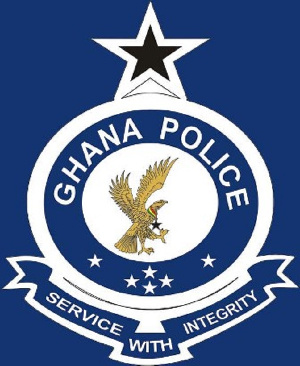- Home - News
- Polls
- Year In Review
- News Archive
- Crime & Punishment
- Politics
- Regional
- Editorial
- Health
- Ghanaians Abroad
- Tabloid
- Africa
- Religion
- Election 2020
- Coronavirus
- Photo Archives
- News Headlines
- Press Release
Editorial News of Saturday, 4 July 2020
Source: ghanaiantimes.com.gh
Ghanaian Times: Media, police collaboration, way to go!
Today, it is almost impossible to exclude the media from any developmental agenda anywhere in the world.
The media, including television, newspapers, radio and presently social media disseminate information to the public more than any other means.
Simply put, the media gives information on any product, service or send message to a wide audience and is able to influence people both positively and negatively. That is why it has become a powerful influence on society today.
More importantly, we also live in an environment where the people depend on the media as a source of entertainment and information.
The fact is that the media plays a very important role in our everyday life and it is for that reason that as a critical sector, it builds relationships with all institutions of state, particularly, the police service.
Notably, professional working relationship between the police service and the media has become an essential part of policing globally.
Unfortunately in Ghana, that has been fraught with suspicion rather than professionalism and integrity.
Although the media appears to have a symbiotic relationship with law enforcement agencies, some incidences of attacks on the media by some security personnel marred that relationship sometimes.
In recent times, some police and military men, have within the past years, subjected some journalists to brutal assaults for merely doing their work.
We recount these incidents with a lot of pain and sadness because attacks on journalists of Ghanaian Times in the past are yet to be fully investigated and the culprits punished.
Despite these setbacks, we find the partnership track between the media and the police in launching a framework on Wednesday, to ensure the safety of journalists and to enhance healthy relationship laudable.
Dubbed, A framework on police-media relations and safety of journalists in Ghana, it is to help also promote safety of journalists and curb impunity against them in the course of their duties.
The Ghanaian Times believes that the partnership is long overdue because the media and the police have a common goal in promoting transparency, accountability, rule of law, protecting fundamental freedom and human rights of citizens and, therefore, needed to have created this partnership long time ago to achieve their common goal.
We welcome the framework and look forward for it to serve as a guide for the two bodies to work in harmony at all times.
We commend all those who put this framework together, particularly, the Ghana Journalists Association (GJA), the National Media Commission, Ghana Independent Broadcasters Association, the Editors-Forum Ghana, Ghana Community Radio Network, Private Newspaper Publishers Association of Ghana and the Ghana Institute of Journalism as well as the Embassy of the Netherlands.
It is our hope that it would be inculcated in the training curriculum of journalists and police to enable them understand their roles to avoid the friction that often led to attacks and brutalities against media personnel in the country.
We call on the two bodies to work together to address gaps that may impact negatively on its implementation to ensure that the objectives of the framework are realised.
Entertainment










